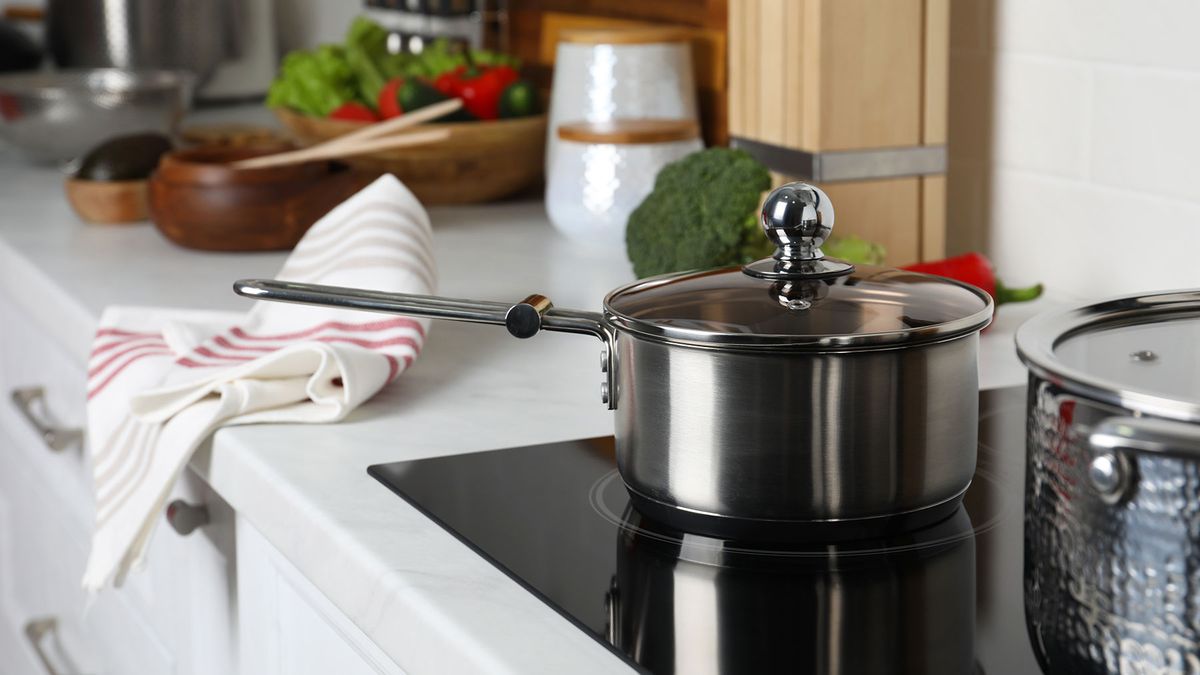My gas range is nearly on its last legs, but when I come to change it, I won’t be doing a like-for-like swap. Instead, I’ll be looking to exchange it for an induction cooktop. Since testing Smeg’s portable induction cooktop I’ve been an induction convert. However, induction cooking takes a little getting used to as it works differently from using a gas or electric range. But, with the difference comes an ability to cook more precisely, with a quicker response time when changing the intensity of heat.
There’s no need to worry about changing your cooking method to induction, as it doesn’t take long to become an induction pro, especially if you learn how to use an induction cooktop before you start.
But you will need to consider the cookware you use, as unlike cooking with gas and electricity, only certain types of pans will work. So, if you’ve got a drawer full of aluminum pans, you might be wondering if you can use them on an induction cooktop. Here’s everything you need to know.
What makes cooking with induction different?
The main difference when cooking with induction, as opposed to gas or electricity, is that heat is transferred differently. Induction cooking works by an electric current passing through a coiled copper wire underneath the cooking surface. This creates magnetic energy that interacts with the cookware rather than the surface of the cooktop. Therefore, for heat to be transferred successfully, pans must be magnetic — heat won’t be transferred if your pans are not made of a magnetic material.
Does aluminum work on an induction cooktop?
Unfortunately, aluminum is not magnetic, so it won’t work on an induction cooktop. And although it won’t cause any harm by placing an aluminum pan on an induction cooktop, no heat will be transferred.
With that being said, you could still have an induction-compatible aluminum pan, because some brands include a compatible base with their pans in order to make them more versatile for different types of cookware.
What can you use instead of aluminum pans on an induction cooktop?
Induction cooktops are designed to work with ferrous-based cookware, such as iron and steel. The iron molecules interact with the induction coil to create a magnetic field that heats up the pan. So, unlike aluminum, stainless steel pans will work on an induction cooktop, along with copper and cast iron.
Are some types of aluminum pans compatible?
What makes using aluminum pans on an induction cooktop confusing is that some are labeled ‘induction-friendly’. But how is this so?
Some cookware manufacturers produce aluminum pans with a magnetized base for induction cooktops. However, this doesn’t help if you’ve got a collection of aluminum pans that will only work on a gas or electric hob!
Can you convert your pans?
Placing converter discs on induction cooktops offers a solution to the problem of having pans that aren’t compatible with an induction hob. The converter discs, usually stainless steel metal plates, can be placed on an induction cooktop to make your cookware compatible. However, experts say that it’s best to use your induction cooktop as intended and follow the manufacturer’s guidance to ensure you get the most out of your appliance, including longevity.
How do you know if a pan is induction safe?
When purchasing a pan for an induction cooktop, look out for an identifying symbol on the packaging — a small coil of wires with four loops. And if you’re in doubt about any pans you already have in your kitchen, you can test the base with a magnet.
A simple fridge magnet will do the job, but make sure it clings to the base of the pan, indicating that it will work well on an induction cooktop. If there is no pull or only a soft connection, the pan won’t conduct heat or won’t work effectively.
More from Tom’s Guide
Source link
